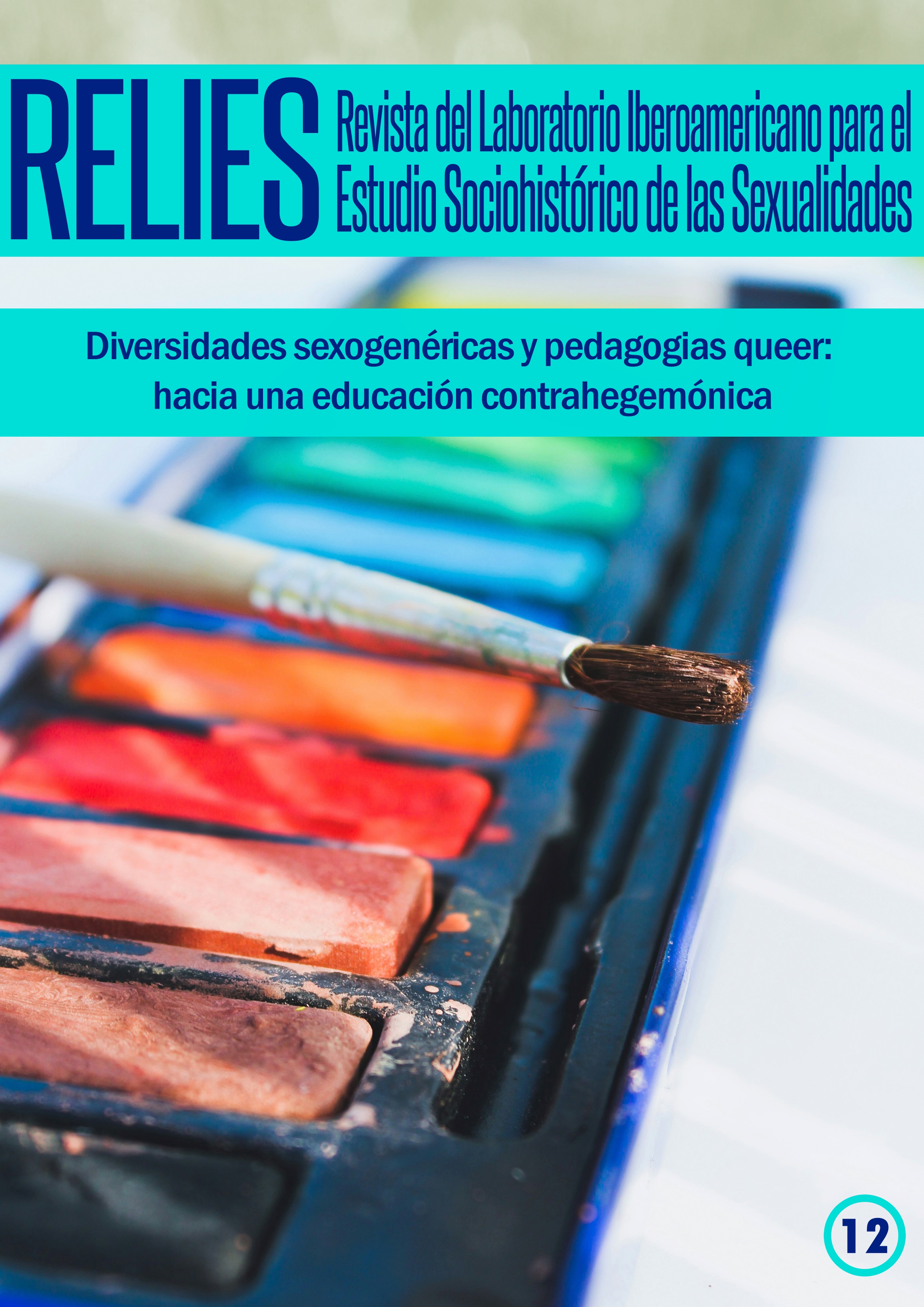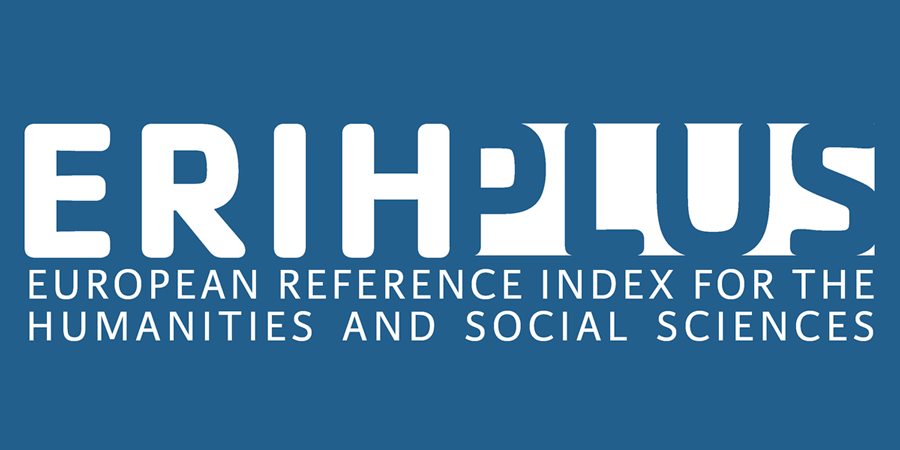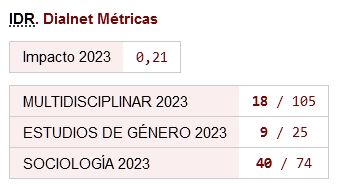Perceção dos professores de Castilla y León sobre os seus conhecimentos em matéria de igualdade, diversidade sexual e educação sexual.
DOI:
https://doi.org/10.46661/relies.11244Palavras-chave:
igualdade, diversidade sexual, educação sexual, auto-perceção, professoresResumo
Nas últimas décadas, houve muitas conquistas em termos de igualdade de direitos e oportunidades para mulheres e pessoas LGTBIQ+. No entanto, são inúmeras as situações de discriminação, exclusão e até violência sofridas por pessoas com diversidade sexual e de género (Damanpak-Rizi et al., 2021; Sánchez Sibony et al., 2018). A escola não está alheia a essa situação, sendo um contexto indispensável para reverter essas manifestações. A formação e a vontade dos professores são essenciais para cumprir as diretrizes e recomendações nacionais e internacionais sobre igualdade, inclusão e educação sexual abrangente. Por esta razão, este estudo centra a sua atenção nos conhecimentos auto-percepcionados sobre igualdade, diversidade sexual, coeducação e educação sexual dos professores da comunidade autónoma de Castela e Leão. Os resultados obtidos revelam um desconhecimento generalizado sobre a diversidade de género e os direitos sexuais. Por outro lado, há também evidência de uma elevada auto-perceção de conhecimentos sobre igualdade de género e feminismo. Tudo isto apoia a necessidade real de melhorar a formação inicial e contínua dos professores, tanto em epistemologias feministas e queer, como em aspectos práticos e didácticos que lhes permitam melhorar o seu ensino.
Downloads
Referências
Aguilar, C. (2013). Género y formación crítica del profesorado: una tarea urgente y pendiente. Revista Interuniversitaria de Formación del Profesorado 27(3): 177-183. http://revistes.ub.edu/index.php/RIDU
Aguirre, A., Moliner, L. y Francisco, A. (2021). “Can Anybody Help Me?” High School Teachers Experiences on LGBTphobia Perception, Teaching Intervention and Training on Affective and Sexual Diversity. Journal of Homosexuality 68(14): 2.430-2.450. https://doi.org/10.1080/00918369.2020.1804265
Alonso-Martínez, L., Forrest, S., Heras-Sevilla, D., Hönekopp, J., y Fernández-Hawrylak, M. (2023). Sexual Risk Behavior, Sexism, and Prejudices Towards Sexual Openness, Homosexuality, and Trans Individuals Among Young People in Spain and the UK. Sexuality Research and Social Policy 20(3): 1081-1095. https://doi.org/10.1007/s13178-022-00777-w
Alonso-Martínez, L., Heras-Sevilla, D., Fernández-Hawrylak, M., Hönekopp, J., Forrest, S., y Kattari, S. K. (2024). Validation in Spanish and English of the Transgender Inclusive Behavior Scale. Archives of sexual behavior: 1-16. https://doi.org/10.1007/s10508-024-02982-7
Aristizabal, P., Gómez-Pintado, A., Ugalde, A. I., y Lasarte, G. (2018). La mirada coeducativa en la formación del profesorado. Revista Complutense de Educación 29(1): 79-96. https://doi.org/10.5209/RCED.52031
Barberá, E., Ramos, A., Sarrió, M., y Candela, C. (2002). Más allá del “techo de cristal”. Diversidad de género. Revista del ministerio de trabajo y asuntos sociales 40: 55-68.
Barón, S., Cascone, M., y Martínez, C. (2013). Estigma del sistema de género: aprendizaje de los modelos normativos, bullying y estrategias de resiliencia. Política y Sociedad 50(3): 837-864. https://doi.org/10.5209/rev_POSO.2013.v50.n3.41971
Barrientos, J., y Cárdenas, M. (2013). Homofobia y Calidad de Vida de Gay y Lesbianas: Una Mirada Psicosocial. Psykhe 22(1): 3-14. https://doi.org/10.7764/psykhe.22.1.553
Barriuso-Ortega, S., Heras-Sevilla, D., y Fernández-Hawrylak, M. (2022). Análisis de programas de educación sexual para adolescentes en España y otros países. Revista Electrónica Educare 26(2): 329-349. http://dx.doi.org/10.15359/ree.26-2.18
Bartual-Figueras, M. T., Carbonell-Esteller, M., Carreras-Marín, A., Colomé-Ferrer, J., y Turmo-Garuz, J. (2018). La perspectiva de género en la docencia universitaria de Economía e Historia. Revista d'Innovació Docent Universitària 10: 92-101. http://dx.doi.org/10.1344/RIDU2018.10.9
Calvo González, S. (2021). Educación sexual con enfoque de género en el currículo de la educación obligatoria en España: avances y situación actual. Educatio Siglo XXI 39(1): 281-304. https://doi.org/10.6018/educatio.469281
Cárdenas, J. M., y Arancibia, H. (2014). Potencia estadística y cálculo del tamaño del efecto en G* Power: complementos a las pruebas de significación estadística y su aplicación en psicología. Salud & Sociedad 5(2): 210-244. https://doi.org/10.22199/S07187475.2014.0002.00006
Carrera, M. V. (2013). Educando Queer: el educador/a social como agente de subversión de género en la escuela. Revista Iberoamericana de Educación 61(2):1-12. https://doi.org/10.35362/rie6121257
Carretero, R., y Nolasco, A. (2019). Sexismo y formación inicial del profesorado. Educar 55(1): 293-310. https://doi.org/10.5565/rev/educar.903
Chisvert Tarazona, M. J. (2012). Coeducación y formación del profesorado en el estado español: apertura a nuevos espacios de reflexión. ORG & DEMO 13(1): 73-86. https://doi.org/10.36311/1519-0110.2012.v13n1.2580
CIS-Centro de Investigaciones Sociológicas (2023). Percepciones sobre la igualdad entre hombres y mujeres y estereotipos de género (Estudio nº 3428). CIS.
Cohen, J. (1988). Statistical Power Analysis for the Behavioral Sciences. (2nd ed.), New Jersey: Lawrence Erlbaum Associates.
Cordón, S., Gutiérrez-Esteban, P., y Cubo, S. (2019). Development of sexist attitudes in primary school teachers during their initial teacher training. Women's Studies International Forum 72: 32-39. https://doi.org/10.1016/j.wsif.2018.11.005
Cortina, H., Iribarren, C., y Martín, A. M. (2022). Teachers’ Explanations of Adolescent to Parent Violence in Relation to Sexism and Belief in the Just World. European Journal of Education and Psychology 15(3): 1–23. https://doi.org/10.32457/ejep.v15i3.2013
Cunha-Oliveira, A., Camarneiro, A. P., Gomez-Cantarino, S., Cipriano-Crespo, C., Pina Queiros, P.J., Cardoso, D., Santos, D.G., y Ugarte-Gurrutxaga, M. I. (2021). The integration of gender perspective into young people’s sexuality education in Spain and Portugal: Legislation and educational models. International Journal of Environmental Research and Public Health 18(22): 11921. https://doi.org/10.3390/ijerph182211921
Cunningham, G. B., y Pickett, A. C. (2018). Trans prejudice in sport: Differences from LGB prejudice, the influence of gender, and changes over time. Sex Roles, 78: 220-227. https://doi.org/10.1007/s11199-017-0791-6
Damanpak-Rizi, M., Farnam, F., y Khodakhah, P. (2021). Effect of cognitive-behavioral therapy on domestic violence and its consequences in transgender youth: a randomized clinical trial, parallel group study. BMC psychiatry 21(1): 1-7. https://doi.org/10.1186/s12888-021-03224-z
Delamata, G. (2013). Amanecer y progreso de un repertorio social activista de derechos bajo la democracia recuperada. Revista Saap 7(2), 307-315.
Dispenza, F., Watson, L. B., Chung, Y. B., y Brack, G. (2012). Experience of careerrelated discrimination for female-to-male transgender persons: A qualitative study. Career Development Quarterly 60: 65-81. https://doi.org/10.1002/j.2161-0045.2012.00006.x
Dugan, J. P., Kusel, M. L., y Simounet, D. M. (2012). Transgender college students: An exploratory study of perceptions, engagement, and educational outcomes. Journal of College Student Development 53(5): 719-736. https://doi.org/10.1353/csd.2012.0067
Fernández-Rouco, N., Fernández-Fuertes, A. A., Carcedo, R. J., Lázaro-Visa, S., y Gómez-Pérez, E. (2017). Sexual violence history and welfare in transgender people. Journal of Interpersonal Violence 32(19): 2885-2907. https://doi.org/10.1177/0886260516657911
FRA-European Union Agency for Fundamental Rights (2024). LGTBIQ equality at a crossroads: Progress and challenges, Luxemburgo: Oficina de Publicaciones de la Unión Europea.
Fleckman, J., Brown, K., Lederer, A., Stoltman, S., & Craft, T. (2023). Tackling oppressive beliefs and sexual violence on college campuses: evaluation of an innovative theater-based intervention. Health Education & Behavior 50(3): 318-327. https://doi.org/10.1177/10901981221120391
García-Pérez, R., Rebollo, M. A., Vega, L., Barragán, R., Buzón, O., y Piedra, J. (2011) El patriarcado no es transparente: competencias del profesorado para reconocer desigualdad. Cultura y Educación 23(3): 385-397. https://doi.org/10.1174/113564011797330298
García-Pérez, R., Sala, A., Rodríguez Vidales, E., y Sabuco I Cantó, A. (2013). Formación inicial del profesorado sobre género y coeducación: impactos metacognitivos de la inclusión curricular transversal sobre sexismo y homofobia. Profesorado, Revista de Currículum y Formación del Profesorado 17(1): 269-287. http://www.ugr.es/local/recfpro/rev171COL1.pdf
Gómez-Jarabo, I., y Sánchez-Delgado, P. (2017). Formación del profesorado en cuestiones de género. Revista de Comunicación de la SEECI 43: 53-68. http://dx.doi.org/10.15198/seeci.2017.43.53-68
Gross, E. B., Kattari, S. K., Steel, M., Wilcox, R., Ernst, S., y Parrish, D. (2023). ‘I have had several providers who recognize my humanity’: exploring the overall health and positive healthcare interactions of transgender and gender diverse college students. Journal of LGBT Youth: 1-25. • https://doi.org/10.1080/19361653.2023.2300068
Heras-Sevilla, D., y Ortega-Sánchez, D. (2020). Evaluation of sexist and prejudiced attitudes toward homosexuality in Spanish future teachers: Analysis of related variables. Frontiers in psychology 11: 572553 https://doi.org/10.3389/fpsyg.2020.572553
Heras-Sevilla, D., Ortega-Sánchez, D., y Rubia-Avi, M. (2021a). Conceptualización y reflexión sobre el género y la diversidad sexual. Hacia un modelo coeducativo por y para la diversidad. Perfiles Educativos 43(173): 148-165. https://doi.org/10.22201/iisue.24486167e.2021.173.59808
Heras-Sevilla, D., Ortega-Sánchez, D., y Rubia-Avi, M. (2021). Coeducation and citizenship: A study on initial teacher training in sexual equality and diversity. Sustainability 13(9): 5233. https://doi.org/10.3390/su13095233
Kattari, S. K., O’Connor, A. A., y Kattari, L. (2018). Development and Validation of the Transgender Inclusive Behavior Scale (TIBS). Journal of homosexuality 65(2): 181-196. https://doi.org/10.1080/00918369.2017.1314160
Ketting, E., Friele, M., y Michielsen, K. (2016). Evaluation of holistic sexuality education: A European expert group consensus agreement. The European Journal of Contraception & Reproductive Health Care 21(1): 68-80. https://doi.org/10.3109/13625187.2015.1050715
Ley Orgánica 3/2020, de 29 de diciembre, por la que se modifica la Ley Orgánica 2/2006, de 3 de mayo, de Educación (LOMLOE). Boletín Oficial del Estado num. 340, 2020, 29 de dicembre. Referencia: BOE-A-2020-17264
Lipson, S. K., Raifman, J., Abelson, S., & Reisner, S. L. (2019). Gender Minority Mental Health in the U.S.: Results of a National Survey on College Campuses. American Journal of Preventive Medicine 57(3): 293–301. https://doi.org/10.1016/j.amepre.2019.04.025
López, J. A. (2018). Movilización y contramovilización frente a los derechos LGBTI. Respuestas conservadoras al reconocimiento de los derechos humanos. Estudios sociológicos 36(106): 161-187 https://doi.org/10.24201/es.2018v36n106.1576
Lundin, M. (2014). Inviting queer ideas into the science classroom: studying sexuality education from a queer perspective. Cultural Studies of Science Education 9(2): 377-391. https://doi.org/10.1007/s11422-013-9564-x
Manzi, F. (2019). Are the processes underlying discrimination the same for women and men? A critical review of congruity models of gender discrimination. Frontiers in psychology 10: 469. https://doi.org/10.3389/fpsyg.2019.00469
Martínez, J.-L., Vicario-Molina, I., González, E. e Ilabaca, P. (2014). Educación sexual en España: Importancia de la formación y las actitudes del profesorado. Infancia y Aprendizaje 37(1): 117-148. https://doi.org/10.1080/02103702.2014.881652
Martxueta, A., y Etxeberria, J. (2014). Análisis diferencial retrospectivo de las variables de salud mental en lesbianas, gais y bisexuales (LGB) víctimas de bullying homofóbico en la escuela. Revista de psicopatología y psicología clínica 19(1): 23-35. https://doi.org/10.5944/rppc.vol.19.num.1.2014.12980
McMillan, J., y Schumacher, S. (2011). Investigación educativa, Madrid, España: Pearson.
Molet, C., y Bernad, O. (2015). Políticas de género y formación del profesorado: diez propuestas para un debate. Temas de Educación 21(1), 119-136.
Parchem, B., Wheeler, A., Talaski, A., y Molock, S. D. (2021). Comparison of anxiety and depression rates among LGBTQ college students before and during the COVID-19 pandemic. Journal of American College Health: J of ACH: 1–9. https://doi.org/10.1080/07448481.2021.2013238
Penna Tosso, M., y Sánchez Sáinz, M. (2015). Evaluación de la homofobia en los futuros docentes de Educación Secundaria. Revista de Investigación Educativa 33(1): 83-98. https://doi.org/10.6018/rie.33.1.179671
Platero, R. (2009). Transexualidad y agenda política: una historia de (dis) continuidades y patologización. Política y sociedad 46(1): 107-128.
Sánchez Sibony, A., Ortega Ruiz, R., y Casas, J. A. (2018). Acoso escolar homofóbico: una mirada internacional. Educación y Futuro: Revista de investigación aplicada y experiencias educativas 38: 83-107.
Sánchez Torrejón, B., Granero Andújar, A., y Esteban Mora, J. (2023). Absence of transgender identities in primary education teachers’ training and its implications in the classroom: A phenomenological study. Education Sciences 13(8): 809. https://doi.org/10.3390/educsci13080809
Sánchez-Torrejón, B. (2024). Pedagogía queer: avances y retos desde una escuela contrahegemónica. Revista de Estudios Socioeducativos. ReSed, 1(12): 171-180. http://dx.doi.org/10.25267/Rev_estud_socioeducativos.2024.i12.14
Subirats, M. (2016). De los dispositivos selectivos en la educación: el caso del sexismo. Revista de Sociología de la Educación-RASE 9(1): 22-36. https://doi.org/10.7203/RASE.10.2.10252
Tarrow, S. (2009). El poder en movimiento. Los movimientos sociales, la acción colectiva y la política, Madrid (España): Alianza.
UNESCO – Organización de las Naciones Unidas para la Educación, la Ciencia y la Cultura (2018). International technical guidance on sexuality education: An evidence-informed approach (second revised edition), Paris (Francia): Autor. Recuperado de https://doi.org/10.54675/UQRM6395
Van Anders, S. M. (2015). Beyond sexual orientation: Integrating gender/sex and diverse sexualities via sexual configurations theory. Archives of sexual behavior 44: 1177-1213. https://doi.org/10.1007/s10508-015-0490-8
Westwood, J. y Mullan, B. (2007). Knowledge and attitudes of secondary school teachers regarding sexual health Education in England. Sex Education: Sexuality, Society and Learning 7(2): 143-159. https://doi.org/10.1080/14681810701264490
Yucel, E., Angelone, D. J., y Jones, M. C. (2023). Reassessing the Confluence Model of Men’s Risk for Sexual Aggression. Journal of interpersonal violence 38(7-8): 6062-6084. https://doi.org/10.1177/08862605221127376
Zehnter, M. K., Manzi, F., Shrout, P. E., y Heilman, M. E. (2021). Belief in sexism shift: Defining a new form of contemporary sexism and introducing the belief in sexism shift scale (BSS scale). PloS one 16(3): e0248374. https://doi.org/10.1371/journal.pone.0248374
Downloads
Publicado
Como Citar
Edição
Secção
Licença
Direitos de Autor (c) 2024 Davinia Heras Sevilla, Laura Alonso Martínez, Sonia Barriuso Ortega

Este trabalho encontra-se publicado com a Creative Commons Atribuição-NãoComercial 4.0.






